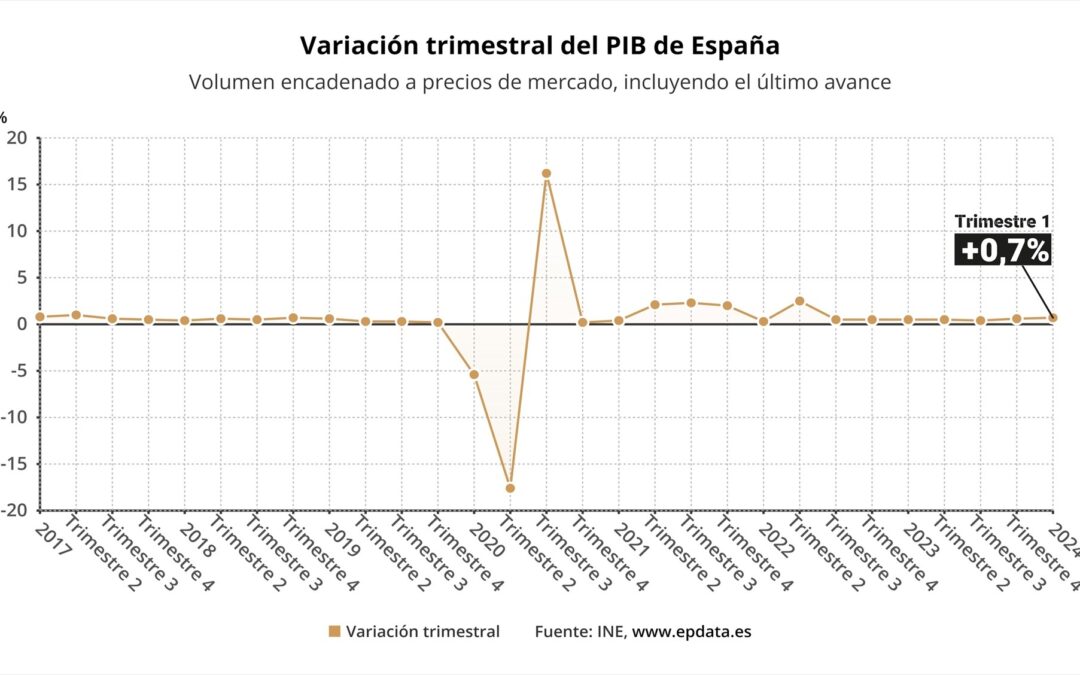Madrid – The gross domestic product (GDP) of the euro area grew at a rate of 0.3% in the first quarter of 2024, which allowed the region to leave behind the recession after a contraction of 0.1% in the last two quarters of 2023, according to preliminary data published this Tuesday by Eurostat. Spain led the growth among the main economies of the European Union thanks to an increase in its GDP of 0.7%, the same figure as in the previous quarter.
Also, for the entire EU, GDP growth between January and March accelerated to 0.3% after the stagnation observed in the fourth and third quarters of last year. Compared to the first quarter of 2023, the increase in the euro zone’s GDP was 0.4%, while for the Twenty-seven it was 0.5%.
In these first months of the year, Spain again led the expansion among the main economies of the EU with an increase of 0.7% in its GDP in the first quarter of the year. For their part, Germany and France grew by 0.2% and Italy by 0.3%.
Among the member states for which data was available for the first quarter of 2024, Ireland (+1.1%) recorded the highest increase in GDP compared to the previous quarter, followed by Latvia, Lithuania, and Hungary (+0.8%). In contrast, Sweden (-0.1%) was the only member state that experienced a decrease in GDP compared to the previous quarter.
The 0.7% growth of the Spanish economy in the first quarter of the year was thanks to the external sector and investment, according to the advance data from National Accounts published this Tuesday by the National Institute of Statistics (INE).
In addition, GDP accelerated its year-on-year advance by three tenths, to 2.4%, driven by domestic demand, particularly, and foreign demand. In this way, the Spanish economy has now accumulated twelve consecutive quarters of year-on-year increases.
The President of the Government of Spain, Pedro Sánchez, has celebrated that the national economy shows this behavior “in such a complex geopolitical context” and has regretted that “these positive data are not being discussed”.
Sánchez, who has finally decided to remain in office after considering his continuity because of the judicial proceedings opened against his wife, Begoña Gómez, for alleged influence trafficking and corruption in business, criticized in an interview that the political debate in Spain revolves around the issues imposed by “pseudo-media and the whole machinery of muck.”
The president has assured that he has not changed his priorities for the legislature, which include advancing rights and freedoms, promoting economic growth and employment, and promoting democratic regeneration. (April 30)
 go to the original language article
go to the original language article
